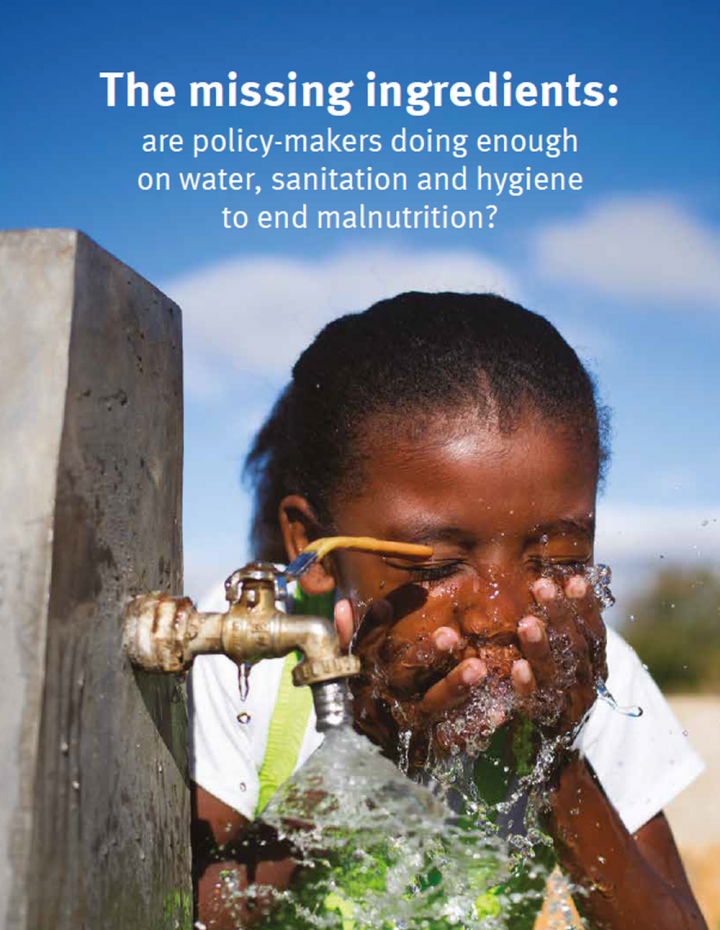The missing ingredients - Are policy-makers doing enough on water, sanitation and hygiene to end malnutrition
Chitty, A., Jones, D., Wilson-Jones, M. (2016)

Published in: 2016
Pages: 28
Publisher:
WaterAid
Author:
Chitty, A., Jones, D., Wilson-Jones, M.
Uploaded by:
SuSanA Admin
Partner profile:
common upload
3940 Views
37 Downloads
Governments around the world have committed to end malnutrition by 2030. However, international and national nutrition plans and actions will fail if they don’t include all the ingredients for success. Evidence shows that scaling up nutrition-specific interventions to 90% coverage in 34 of the countries with the highest burden of child undernutrition, will only reduce stunting by 20%.
This report highlights why water, sanitation and hygiene (WASH) are essential for nutrition. Through an analysis of nutrition and WASH plans and policies in 13 countries, gaps and ways of working are identified.
Rather than just making demands for more integration, the research highlights where this is already being done well at policy level and where and how improvements must be made. A holistic approach is needed that addresses both the basic and underlying causes of undernutrition, which include the education, health, agriculture, and WASH sectors. The development of nutritionsensitive approaches within these sectors is
vital to end malnutrition. At the same time, this offers unique opportunities to achieve each sector’s goals.
Bibliographic information
Chitty, A., Jones, D., Wilson-Jones, M. (2016). The missing ingredients - Are policy-makers doing enough on water, sanitation and hygiene to end malnutrition. WaterAid
Filter tags
English WASH and nutrition (WG12)














